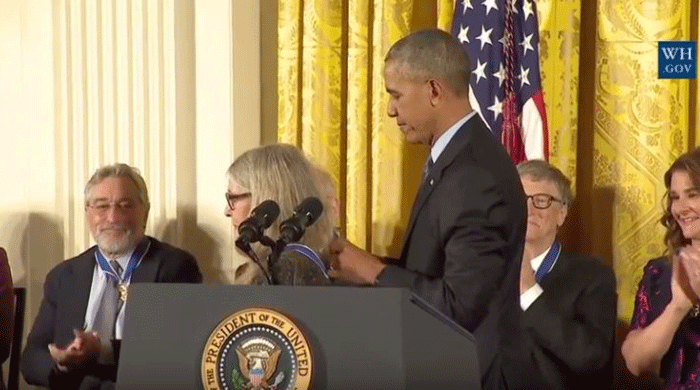Margaret H. Hamilton and Rear Admiral Grace Hopper played key roles for NASA, Navy.
On Tuesday, President Barack Obama awarded the Presidential Medal of Freedom to several luminaries in the arts, sports, and sciences.
Of those, the class of 2016 included two women who played crucial roles in American computer science in the 20th century: Margaret H. Hamilton and Rear Admiral Grace Hopper, who was given the award posthumously.
Here’s how the White House described the pair:
Margaret H. Hamilton led the team that created the on-board flight software for NASA’s Apollo command modules and lunar modules. A mathematician and computer scientist who started her own software company, Hamilton contributed to concepts of asynchronous software, priority scheduling and priority displays, and human-in-the-loop decision capability, which set the foundation for modern, ultra-reliable software design and engineering.
…
Rear Admiral Grace Hopper, known as “Amazing Grace” and “the first lady of software,” was at the forefront of computers and programming development from the 1940s through the 1980s. Hopper’s work helped make coding languages more practical and accessible, and she created the first compiler, which translates source code from one language into another. She taught mathematics as an associate professor at Vassar College before joining the United States Naval Reserve as a lieutenant (junior grade) during World War II, where she became one of the first programmers of the Harvard Mark I computer and began her lifelong leadership role in the field of computer science.
Wired wrote a brief profile of Hamilton in October 2015, which noted that Hamilton took great pride in her code and made sure that it was in tip-top shape. She told the magazine that she worried about flaws in her code and commented that she “was always imagining headlines in the newspapers, and they would point back to how it happened, and it would point back to me.”
In September 2016, the United States Naval Academy announced that it would name its future cyber building after Hopper, who passed away in January 1992 at the age of 85.



